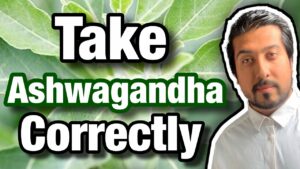Dr. Rubenstein, a dentist based in New York City, uses social media to show that dentistry can be fun and not scary. He explains that sugar does not directly cause cavities but rather creates the perfect environment for cavities to form when combined with bacteria and other factors. He advises against brushing immediately after eating, as it can damage enamel. Instead, rinsing with water or alcohol-free mouthwash is recommended. Dr. Rubenstein explains the benefits of using a waterpik for cleaning hard-to-reach areas and recommends it as an adjunct to flossing. He cautions against using charcoal toothpaste, as it can be abrasive, and suggests professional teeth whitening for best results. Finally, he emphasizes the importance of using a soft bristled toothbrush and proper brushing technique for maintaining oral health.

Our Summaries are written by our own AI Infrastructure, to save you time on your Health Journey!
Key Insights:
- Dr. Rubenstein uses social media to showcase the fun and welcoming environment of his dental office.
- Sugar itself does not directly cause cavities, but when combined with bacteria and a conducive environment, it can lead to tooth decay.
- Brushing immediately after eating, especially sugary foods, can damage the enamel. It is recommended to rinse the mouth with water or mouthwash instead.
- Brushing your teeth in the morning and at night, along with flossing, tongue scraping, and using mouth rinse, is essential for maintaining good oral hygiene.
- A water pick can be used as an adjunct to flossing for reaching hard-to-reach areas, but it does not replace traditional flossing.
- Charcoal toothpaste is abrasive to the enamel and can cause damage. Professional teeth whitening by a dentist is recommended for better and longer-lasting results.
- Brushing harder does not make teeth cleaner. Using a soft-bristled toothbrush and angling it correctly is more important.
- Consult your dentist for any medical advice related to your oral health.
Transcript
Hello, hello, hello everyone! This is Dentist Dr. Rubenstein, and we’re talking everything you need to know when it comes to the mouth. Oh, . Dr. Rubenstein is a dentist based in New York City. You might have seen him on Instagram or TikTok, where he posts lots of smile transformations. Dr. Rubenstein, where did you get your inspirations to start making everyone smile about dentistry?
You know what it is, I was very honored and blessed to grow up with two parents who are both dentists. And growing up in dentistry, I remember how scary it seemed. So the first thing I wanted to do was use social media to showcase how much fun we’re having at the office. It’s not that scary. We have these dances sometimes with my team, we have these cool videos that we do. We show how welcoming and inviting we actually are.
Alright, Dr. Rubenstein, I want you to set the record straight. Does sugar cause cavities?
So, it’s not the sugar itself that could cause the cavities. You need the perfect environment for cavities to be formed. First, you need the bacteria in your mouth. Then, you need the perfect environment where your mouth is either dry or your teeth have these deep grooves or maybe genetically you’re more susceptible to cavities. The sugars and the carbs, all that together could cause cavities.
So, let me guess, to help prevent cavities, you’re going to tell me to make sure I brush all the time, right?
I have to brush every day, brush in the morning, brush at night, brush after every time I eat, specifically sugar?
No, definitely not. Do not brush your teeth after you eat. That is the worst thing you can do. So many people do because your mouth is now in an acidic form, and when you brush your teeth, you can actually scratch your enamel. So, it causes more damage than it does anything positive.
Wow, who knew that? Do you know how many people that I know do that all the time? They brush right after they eat because they feel like, you know, I ate the garlic, I had the onions, I need to go brush my teeth.
Rinse your mouth with water, with alcohol-free mouthwash. You could use mints, but do not brush your teeth right after you.
Wow, so when is the best time to brush your teeth?
Morning and night, be consistent. You brush, you floss, you scrape your tongue, and use mouth rinse.
So, some friends of mine, you know, they are raving about a Waterpik, something like this. Can you explain to everyone how this works?
So, you fill up this little cup area with water, and it has a gentle stream of water pressure that goes and shoots between your teeth. So, it feels good, it feels like it’s fresh. A lot of people mix it with different solutions, so depending on what the hygienist and dentist recommends to you, you can mix it. And it also helps with any gum problems and things like that. There’s a very light pressure of water that goes through this, and when you put it against your gums, it massages the gums and gets rid of any food that can get stuck there. So, a lot of people like to use this because it’s easy to get into the hard-to-reach areas, especially in the back. Back molars can’t hide from a Waterpik, right?
No, no, definitely not, absolutely.
Alright, so can you tell me the difference between this and flossing? You know, I have this question asked all the time because people are like, „Can I just floss?“,“Can I just use the Waterpik?“
I don’t think a Waterpik is something that you’re gonna use exclusively. I would recommend using it as an adjunct to flossing, because you need to use as many tools as possible to keep your mouth as clean and healthy as possible. So, for those that have not flossed, shame on you.
Traditional floss is a strength, it’s understanding how to hold it. A lot of people have not been taught properly how to floss.
Alright, doc, so let’s get down to it. You know, I have my gifted teeth here. So, how about you demonstrate the proper way to floss?
The idea is not just to go down and up, because that way, you’re gonna damage the gum, cut the gum, and cause a lot of bleeding and discomfort. What you want to do is actually bend the floss against the tooth and let it glide all the way up and down, even below the gum because that’s where most of the bacteria is hiding. You don’t want to just clean the top portion of the tooth. You want to go a little bit below the gum, go up and down gently, gently, and remove it and extend the floss so that you’re not bringing the exact plaque back into the gums because most cavities are caused between the teeth, and also gum disease starts from between the teeth as well. For those that are not flossing, get into the habit of flossing because it’s going to save your oral health.
So, bottom line, one does not replace the other. A Waterpik does not replace traditional floss. Use it together to get the best oral health, right? Because it’s about total mouth health, exactly.
So, I think we’re always looking for ways to brighten up our smile. There’s always commercials on brightness, right? So, what’s the deal with charcoal and whitening paste?
Charcoal toothpaste is actually charcoal, what we use to barbecue. It’s a very grainy material, it’s dark, and it’s very abrasive to your enamel. It basically scratches your enamel. You wouldn’t use charcoal when you’re washing your beautiful car, so I wouldn’t really recommend using charcoal to wash and clean your teeth. The other alternative to charcoal is whitening toothpaste. Whitening toothpaste has ingredients in there that are not as heavy and abrasive, meaning they can scratch your enamel, but it still has ingredients of acid that could cause damage. So, if you’re brushing hard with whitening toothpaste, you can remove layers of enamel. For those that want to whiten their teeth, when you go to your dentist, let them do it professionally. The results will be better, it’ll be brighter, and you’ll also have a long-lasting, healthier smile.
I have a question about also brushing harder. Is brushing harder actually making your teeth cleaner?
Not true. Do not brush your teeth harder. The idea is to angle it the proper way, 45 degrees by your gums, so this way, you remove the plaque. You want to use a soft-bristled toothbrush. These teeth are supposed to last for the rest of your life, so you do not want to cause any damage to your enamel early on in your life, right?
And the soft bristle, I’ve always used the harder one and thought that the harder one was working better, but no, it’s the soft bristle that you use.
Soft bristle toothbrush. It will still do the job as long as you’re doing it correctly.
Remember to see your dentist for any medical advice, right? Doctor Rubenstein?
Yes, ma’am.
Alright, let me show you. So, there is something going on back here. Okay, again, yeah, I know, it’s ridiculous. So, this one’s coming down. .





